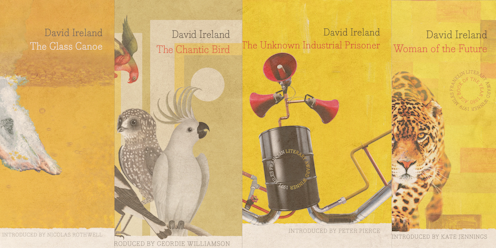Farewell to David Ireland, three-times Miles Franklin winner and master of mosaic fiction
- Written by Van Ikin, Professor, Senior Honorary Research Fellow, The University of Western Australia

Australian novelist David Ireland, winner of three Miles Franklin awards in the 1970s, and recipient of the Order of Australia in 1981, has died at the age of 94.
Born in 1927 in Lakemba, New South Wales, he wrote poetry and plays before his first novel, The Chantic Bird[1], appeared in 1968, the dust-flap proclaiming that Ireland “intends concentrating future efforts on the novel”. It was a good decision, for he won his first Miles Franklin Award[2] four years later and commenced writing full-time the following year.
Read more: The case for David Ireland's The Glass Canoe[3]
Haunted by the plight of the underclass
Fascinated by sweeping existential issues and their impact on the lives of those oblivious to them, Ireland was also compassionately haunted by the plight of society’s underclasses and the great silence about them. Characters in his early novels are factory workers, the unemployed, the homeless, and those lost to alcohol or beset by mental illness.

















